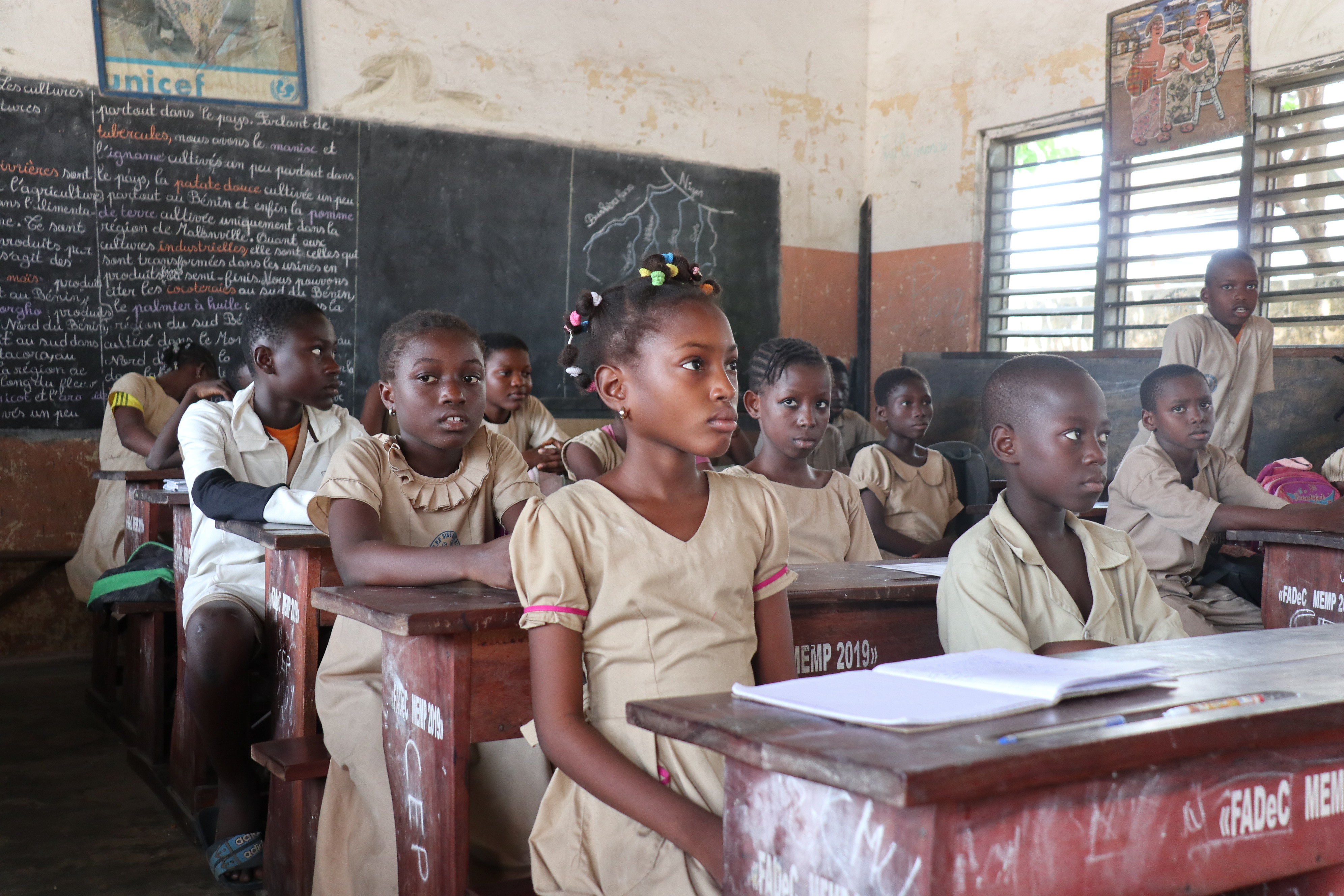Photo credit: Christine Redmond/Aide et Action
In August 2020, Aide et Action distributed radios in remote villages along the Mekong River, in the Kratie province of Cambodia. This way, children can adapt to a new form of distance learning, despite the current pandemic.
After six months of school closure in remote provinces of Cambodia, there is a considerable risk that children from ethnic minorities will not be able to follow the distance learning programs and will face great difficulties when they return to school. To address this situation, Aide et Action decided to support the students of Pun Thachea primary school by delivering radios, school supplies and hygiene materials.
The literate generation
At the distribution, Andout Thear, a villager who works as a farmer and fisherwoman, was pleased to bring her children to meet our team and pick up the much-needed learning materials. Theary calls her children 'the literate generation' - the first in the village - and looks forward to seeing them return to school.
Indeed, it was only in 2012 that a school was built in Pun Thachea. " When I was a child, we studied under a mango tree because we had no school building "Theary recalls. " But I only studied until the first grade - my teacher died and my education stopped "She adds, explaining why she and her husband are illiterate and unable to teach their children at home.
Her two older children were able to go to the end of primary school, but after that she could not encourage them any further because secondary school was out of reach - geographically and financially. Her two youngest children are now in CE2 and CM2 respectively, but due to COVID-19, they are no longer in school since March 2020.
Inequalities persist
When the local authorities came to put up posters with information on preventive measures related to the virus, many parents in the village had to ask their children to explain what it meant. " I can't read or write, but that's normal for me "She says, noting that all the parents in the village are in the same situation.
While distance and online learning has become the norm for children around the world in 2020, inequalities in access persist. For Theary's children, the barriers are geographical distance, language and poverty. She herself does not know what the Internet is. In a village with no mobile data coverage and high levels of illiteracy, alternative and flexible learning strategies need to be developed to reach families like Theary's so that children do not fall behind.
In April 2020, Cambodia's Ministry of Education, Youth and Sports began broadcasting radio programs in three of Cambodia's most widely spoken ethnic minority languages - Tumpun, Kreung and Bunong - in an effort to create more inclusive educational programs. While the radio broadcasts are a welcome effort to include ethnic minority children, there is a notable concern that many of the target families do not have a radio in their homes.
Increasing participation and inclusion
To increase participation and inclusion in this context, Aide et Action has distributed radios to children in Mondul Kiri, Ratanak Kiri and Kratié provinces. About 4000 radios were delivered to primary school students in the three provinces from June to August 2020 and studies are currently underway to develop more programs in minority languages.
For Srey Ka, Theary's youngest daughter, aged 8, the radio is a welcome tool. Despite the closure of her school, she has remained determined to try to continue learning and studying every day at home. " I want to be a doctor when I grow up and I can't wait to go back to school "The little girl says as she climbs a tree to get a better signal for her new radio.






